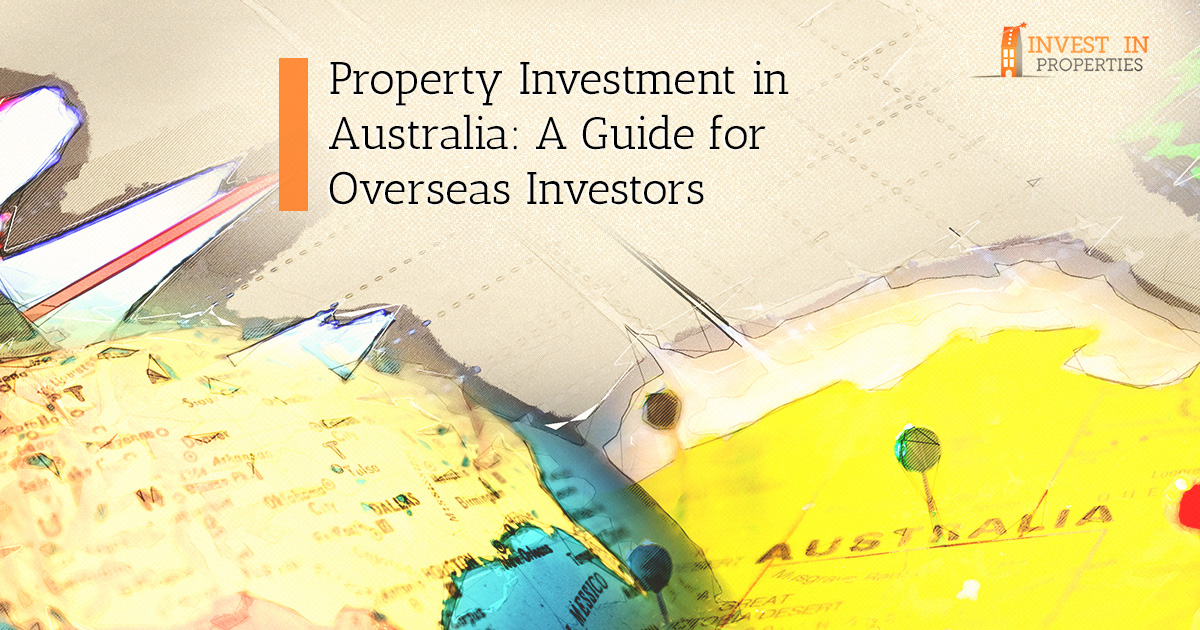The Australia Government views foreign investment as a nest for the country’s growth. Its foreign investment policy on property emphasizes investment into “new dwellings.” Partly, as a way of creating construction jobs but also to enhance economic growth.
It is a favourable view, particularly for an overseas investor. Investing in Australian property has become a popular way of expending money for profit. And not just because of the laxity of the government, but also because:
- The Australian property market is stable.
- There’s consistent capital growth
- Government policies are direct and less restrictive
- Australia is generally a great place to live.
- Property investment in Australia is considered a safe investment.
Be that as it may, the government imposes certain guidelines that foreign investors must understand and comply with. Otherwise they face harsh penalties.
This article shades some light on how to invest in property in Australia as an overseas investor. Hopefully it can help you avoid some of those harsh penalties.
What Property can you Purchase as a Foreigner?
First of all, no purchase of Australian property can be made by a foreign citizen without the approval of the Foreign Investment Review Board (FIRB). Committing yourself into a transaction before getting approval is not advisable.
Second, as a foreigner normally, you are not allowed to purchase established properties. You can, however, apply to purchase new dwellings.
According to the FIRB, new dwellings are properties that have never been sold by the developer or been occupied before for more than 12 months. Anything other than that (apart from commercial residential premises, including hotels) is considered as an established dwelling.
Foreign persons can also buy vacant residential land for development.
Any purchase is subject to foreign investment approval which is usually without conditions for purchase of new dwellings. For purchase of vacant land, approval is on condition that construction of a new dwelling is completed within four years.
What are the FIRB Fees?
An application fee is sanctioned by the FIRB and the Australian Tax Office before approval is awarded to purchase residential real estate in Australia.
The fee differs depending on the size of investment.
| Value of Real Estate Investment (AUD) | FIRB Application Fee (AUD) |
| $0 – $1,000,000 $1M – $1,999,999 $2M – $2,999,999 $3M –$3,999,000 $4M – $4,999,999 $5M – $5,999,999 $6M – $6,999,999 $7M – $7,999,999 $8M – $8,999,999 $9M – $9,999,999 $10M or more | 5000 10100 20300 30400 40600 50700 60900 71000 81200 91300 fees are tiered per million |
Tax Treatment on Rental Income and Capital Gains
Rental Income
In every year that your property earns an income, you will have to complete an Australian tax return. Claims for deductions for certain kinds of expenses are welcome. Just make sure that you notify your tax advisor. He/she will be able to use that information in completing your tax return.
The tax treatment of your rental income depends on whether:
- It exceeds all of your deductible expenses—that’s it is “positively geared.”
- It is equal to your deductible expenses — “neutrally geared”,
- It is less than all your deductible expenses — “negatively geared”.
Capital Gains
Australia charges a Capital Gains Tax (CGT). Basically, capital gains are added to your taxable income in the respective year and taxed accordingly, usually at a marginal rate no greater than 47%.
About Finding and Selecting a Property to Buy
Where and what you buy will affect the return on your investment. Consider this before selecting a property to buy:
Choose an area where there’s potential for growth. The main goal for a foreign investor should be towards getting a good return on their capital.
Coincidentally, Australia’s property market is rife with opportunities to grow your wealth. Most investment grade property are situated in the big cities, especially Sydney, Melbourne, Brisbane, and Perth. Geelong in Victoria and Newcastle in New South Wales have been in good shape for the better part of the last decade. Darwin, the capital of the Northern Territory, and coastal areas like Queensland’s Gold Coast are all sitting at different stages of the property cycle. Mining towns like Port Hedland in Western Australia experience stellar capital growth with varied slumps.
Follow the usual investment indicators to guide to you, such as proposed infrastructural changes in a suburb that could affect its future house prices.
What are the Property Purchase Costs?
The direct purchase costs involved with buying property in any of the Australian states include Government stamp duty, land transfer, and mortgage registration fees. Victoria, New South Wales, and Queensland include a stamp duty surcharge fee for foreign investors in addition to the above.
Other costs include legal/conveyancing fees, architectural and pest inspection fees, loan application fees, insurance cover and pro-rata adjustments for services, such as strata, water and council rates.
Overall, the costs can be quite substantial. You will need to include them in your financing considerations as they play an important role in your final decision.
In conclusion, property investment in Australian is not at all difficult. By following the appropriate professional advice at every stage of the process and meeting the FIRB requirements, you’ll be okay.
However, you should defer from investing in a property if you don’t understand the tax issues associated with owning it. Be it in terms of income and capital gains. Also as a foreign investor, your focus should be in making sure that you don’t experience any surprises on your way to investing in Australian property.
To find out about where our in-house research believes are the top 9 suburbs for unit growth in 2017 and beyond, click the image below to download your free report.







